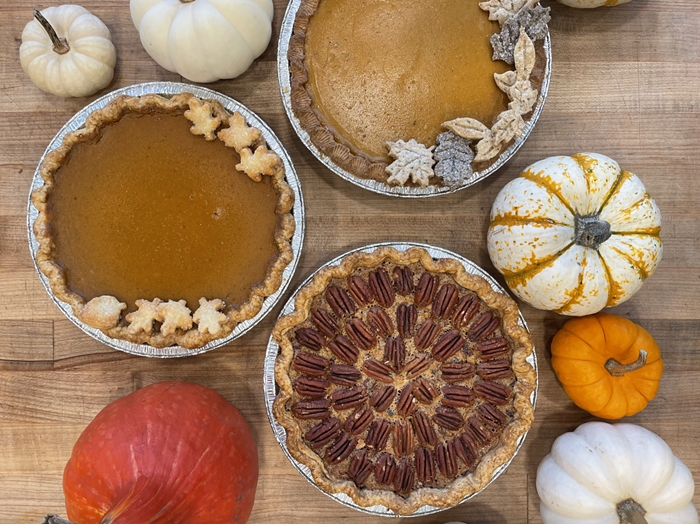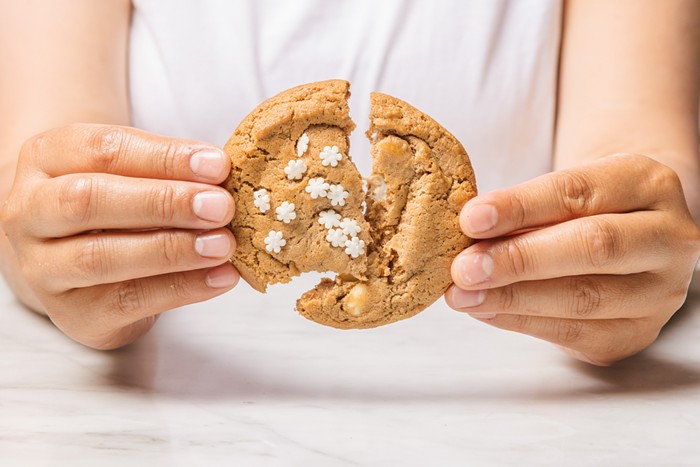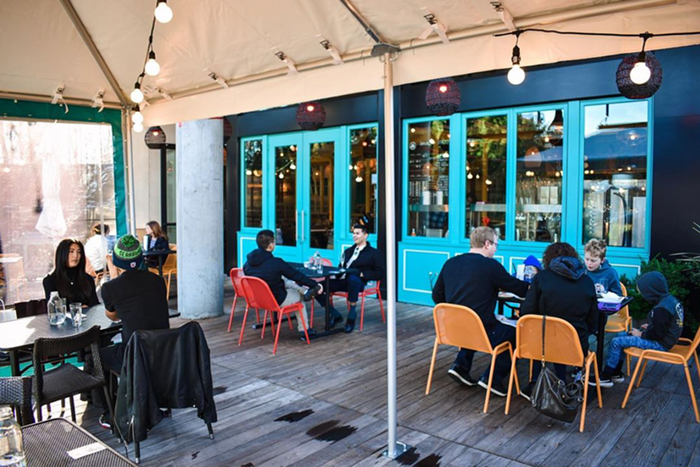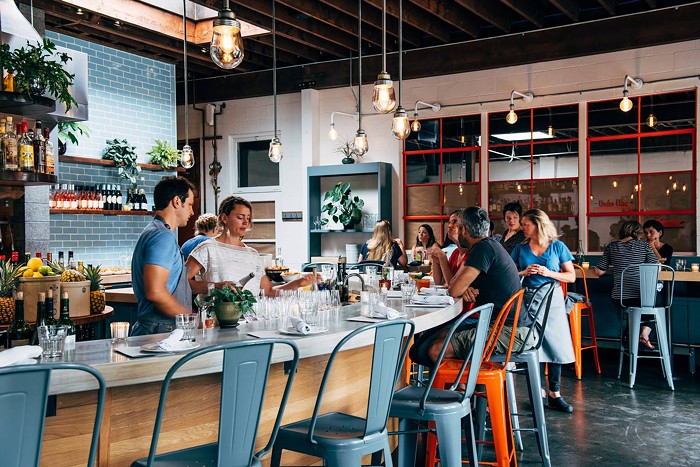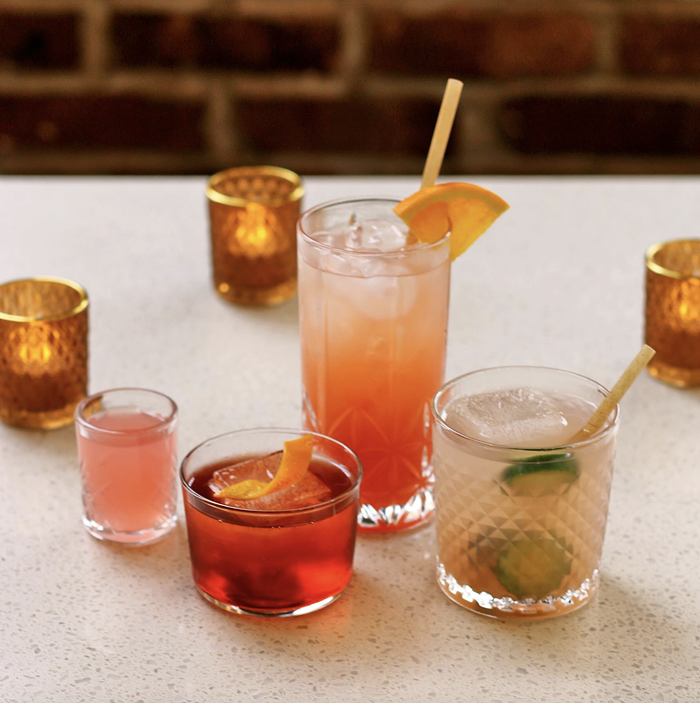Food grilled at your table has an undeniable appeal. You can't do it at home without getting carbon-monoxide poisoning, and whether it involves the spectacle of a professional chef's performance or your own amateur efforts, it literally sizzles, which lamentably few experiences do. In the sizzling-by-chef category, the Japanese-style teppanyaki at Benihana (1200 Fifth Ave, 682-4686) is considered premiere dinner theater by legions of Americans in 25 states; our downtown outpost draws devoted crowds. In the self-service sizzling class, there's Seattle institution Shilla (2300 Eighth Ave, 623-9996), the mysterious Korean-barbecue restaurant driven past by many, entered by few. How do these temples of experiential grilling compare?
On a recent Saturday evening, Benihana's weird sunken courtyard teems with teenagers in formal wear. The boys' rented tuxedos are uniformly ill fitting; shoulders sag, cummerbunds gape. The girls' dresses fit all too well; the sheer volume of cleavage is stunning, and miles of bare legs end in strappy spike-heeled sandals. The girls look 16 going on 29; the boys look like newly hatched baby birds. Approximately 15,000 digital photographs, being taken relentlessly on all sides, will document this momentous night.
Before their winter dance, these teens dine seated in formations of eight around Benihana's large tabletop grills. Chefs bow to them prior to preparing before their eyes an Asian feast, a very bland feast, but a feast nonetheless. Moreover, these chefs put on a show—flipping metal spatulas about and clanging them upon the grill in a nerve-shattering manner, launching shrimp tails into the air to catch them atop their brightly colored toques, creating mini-Vesuviuses out of stacked up rings of onion, lofting half lemons to stab them out of the air with carving forks, and slicing and dicing with very sharp knives at relatively impressive speeds. The teens, by and large, look unimpressed, even sullen, as teens are wont to do. Some of the boy teens eat as if they were raised by wolves, hunched over their plates, shoveling food into their mouths with optional forks rather than chopsticks as if the food were in danger of getting away.
None of America's future via Issaquah sits at my grill station, though a gentleman from Los Angeles with a perfect manicure has brought his adolescent daughter, who sends and receives text messages without ceasing. Within moments, he is affectionately harassing my dining companion about why we're not an item, discussing me at length in the third person. My companion, a gay man, skillfully turns the conversation to gossip about Mr. L.A.'s celebrity neighbors (Salma Hayek, it is revealed, is a real bitch). Further misguided male bonding initiated by this individual will include his deeply troubling assessment of how hot his 16-year-old daughter's friends are.
Across the grill, the male half of a couple from Colorado reports loudly that he's feeling no pain, as if his inebriation weren't already self-evident. They've been to Benihana in Florida and New Jersey; they love it. "They make a good product here," Mr. L.A. concurs. The chef looks near-suicidally bored throughout; when urged to add whatever he likes to the tough filet mignon and uninspired vegetables he's preparing, he says, "I have no spice."
By the end of the meal, temporary bonds aplenty have been forged. Mr. Colorado, overcoming clear horror, tastes a piece of my grilled eel; Mr. L.A. buys a round of drinks and hands out business cards. "This is the way America oughta do it all the time," Colorado summarizes. He gestures drunkenly at the grill top: "You put it on the thing, mix it up, and you all get along." While Benihana is a memorable, endlessly fascinating circle of hell, at about $50 a person, it is a travesty of a restaurant.
Shilla exists in some sort of liminal state. Sitting in traffic, you may wonder about it, but this wonder may last for years, if not forever. The building's fantastic, faceless midcentury architecture looks inward, inviting and rebuffing curiosity simultaneously. The location of the entrance—on a deserted corner a block off Denny Way—is elusive.
At the curb outside, a man in a suit waits at the wheel of a late-model American luxury sedan, reading a newspaper in the glow of the dome light. A pillaged Japanese rock garden flanks Shilla's front door; the roof of a miniature pagoda has been knocked off in what appears to have been a miniature war, and a very small bombed-out stone bridge goes nowhere.
Inside, the décor is simple and tranquil, teahouse-like. Asian businessmen confer in booths hooded by the maws of industrial-strength exhaust fans. Upon ordering Korean barbecue, the flames of the copper grill in the center of the table are ignited; then at a magical moment an unseen hand activates your fan. It roars like a goddamn jet engine, drowning out the classical music, creating a cone of strangely soothing white noise in which only the person across the table may be heard. If you wanted to calmly plot something nefarious, this would be the place to do it.
The deferential waitresses don't serve food so much as cause its appearance. For the accompaniment of your bul go gi ("fire broiled, thus fire beef!"), nine small dishes of different tofus, bean sprouts, kimchi, spinach, julienned cucumber, and so forth manifest themselves. Then a pile of meat—ruby red, sliced very thin, in a pool of garlic/sesame marinade—materializes.
My dining companion turns the gas flames up all the way, and for a brief, thrilling time we create maximum clouds of smoke for our fan, tonging pieces of beef on and off the grill in a matter of seconds and incorporating them in very messy lettuce wraps. (A potato salad with bits of carrot is the surprise favorite condiment, cool and sweetish in contrast to the tender, sizzling meat.) Then a waitress gliding by turns down our grill, silently reproachful. Still, sizzle occurs, the center of a cozy, private, temporary world. Shilla, at $20–$30 per person, is, after all those years of wonder, pretty wonderful. 
